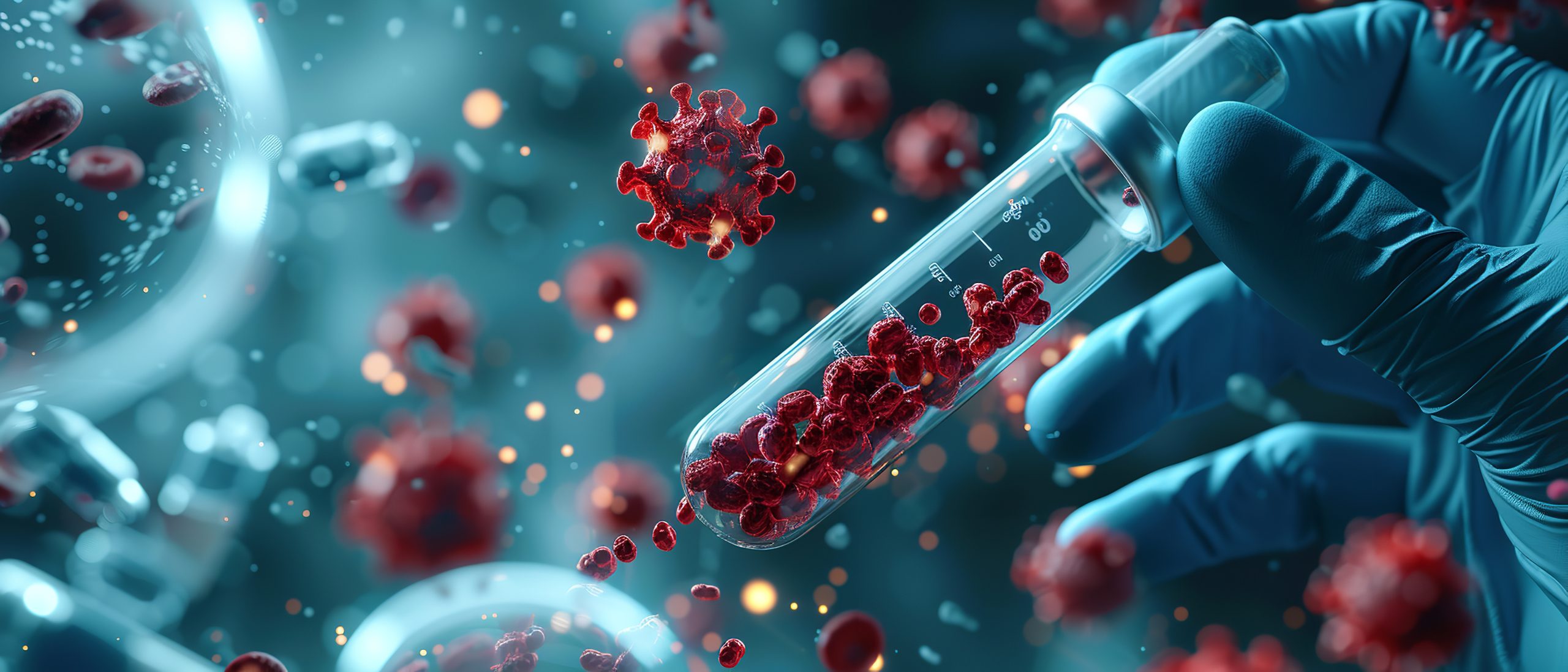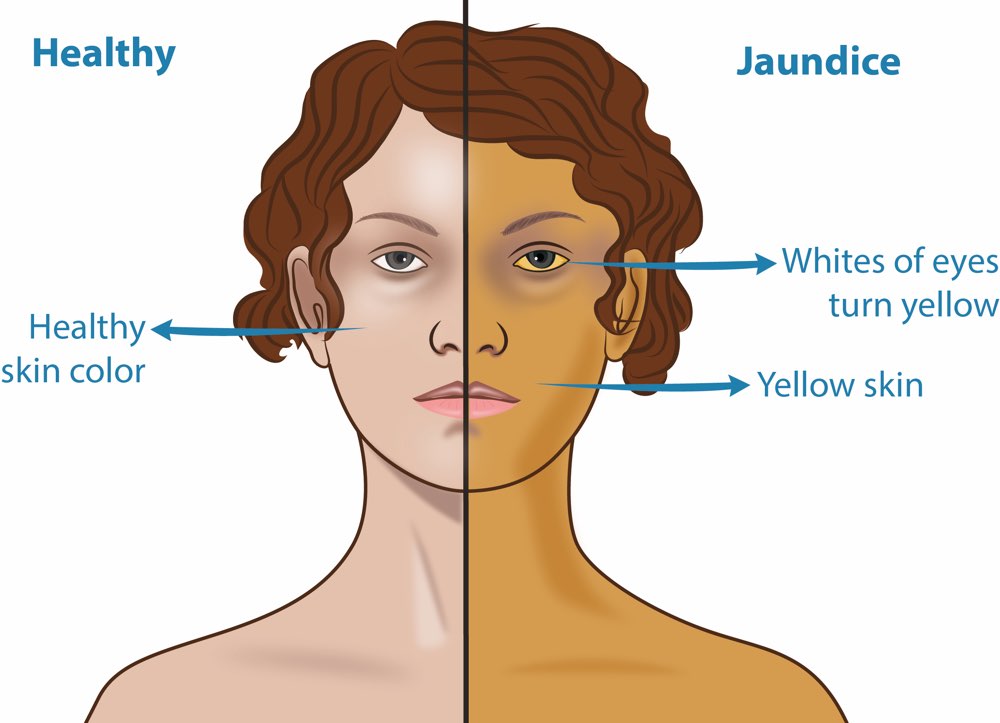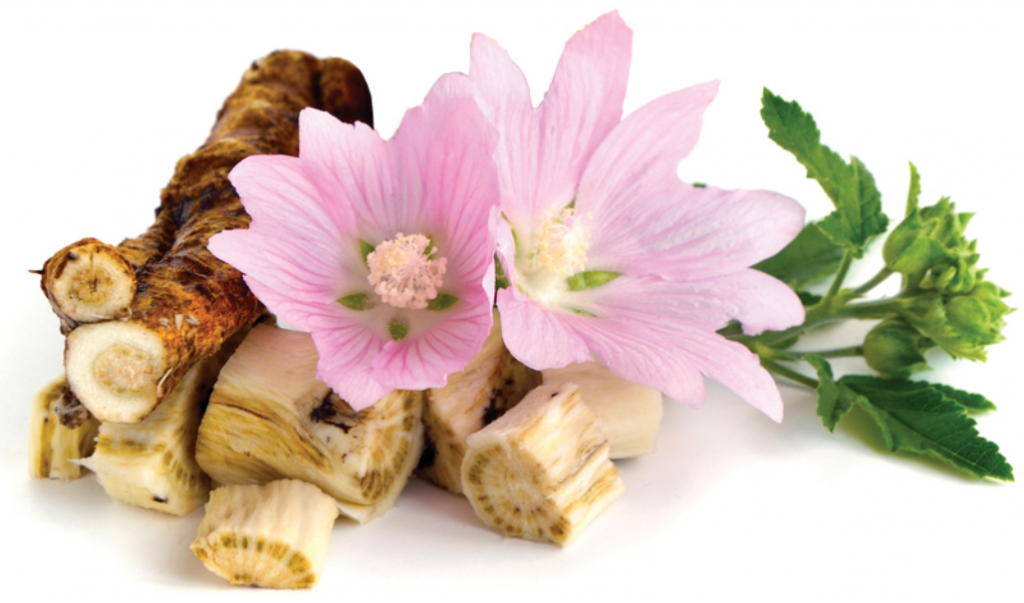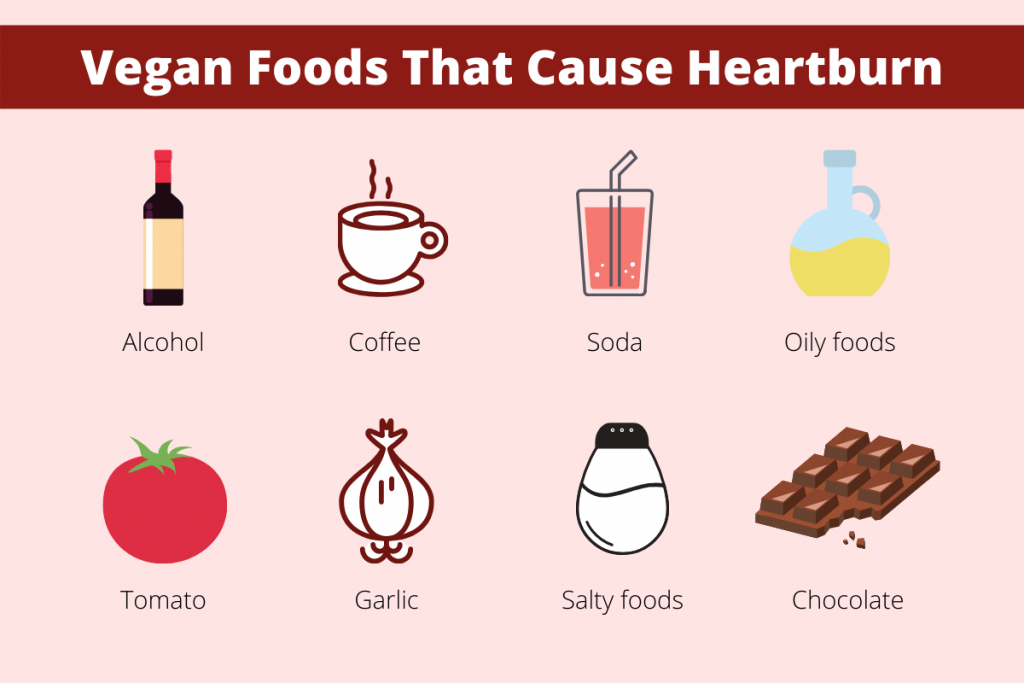
Diving into Chronic Lymphocytic Leukemia (CLL) & Treatment
Do you want to know what Chronic Lymphocytic Leukemia, known as CLL is? Well, CLL is considered the most common form of leukemia that mostly occurs in adults. It is considered a type of cancer that highly affects the lymphocytes or white blood cells. It mainly accumulates in the bone marrow or blood, leading to different symptoms.
If we could say that Chronic Lymphocytic Leukemia is a slow-growing cancer then, it wouldn’t be wrong. It slowly and gradually affects the whole immune system of the human body and causes a lot of complications. In the article below, we will discuss everything about CLL. We will also target how to treat chronic lymphocytic leukemia and different common treatments that can be considered for this condition.
What is Chronic Lymphocytic Leukemia?
Chronic Lymphocytic Leukemia or a CLL, is a type of leukemia that mostly occurs due to the abnormal accumulation of lymphocytes in the blood. The accumulation of lymphocytes in blood, bone marrow, or lymph nodes led up to the condition known as Chronic Lymphocytic Leukemia.
This condition of accumulation of cells is a slow-growing disease and does not cause any major symptoms for years. However, it is important to know that at the progression stages the disease can cause many complications such as anemia, bleeding, or infections.
What Are The Types of Chronic Lymphocytic Leukemia?
There are different types of chronic lymphocytic leukemia. It is mainly divided into two main types:
- The very first is chronic lymphocytic leukemia, also known as CLL. It is the first and most common type of CLL and occurs by the gradual accumulation of mature B lymphocytes in the blood or bone marrow.
- Another type is T cell PLL. It mainly affects the T lymphocyte nodes, which is responsible for the white blood cell coordination with the immune system response against infections or abnormal cells. Moreover, T cell PLL mostly show symptoms quickly as compared with people with B cell CLL.
What Are The Causes of Chronic Lymphocytic Leukemia?
According to research, it usually occurs in individuals who have gone through the chromosomal or Gene mutation in their lifetime. Additionally, there are different factors that also contribute a lot to the development of Chronic Lymphocytic leukemia. Below, we have mentioned certain factors:
- The very first is Age. On average, adults over the age of 60, or nearly 70, are diagnosed with Chronic Lymphocytic Leukemia.
- Family history also contributes a lot. The individuals who have a close family history of Chronic Lymphocytic Leukemia Development in their biological parents, siblings, or children are more likely to develop CLL.
- Sexuality also contributes. According to research, men are more likely to develop CLL in comparison to women at birth.
- The exposure to Agent Orange also led to the development of Chronic Lymphocytic Leukemia. Agent Orange is a chemical that was previously used, especially during the Vietnam War.
What Are The Symptoms of Chronic Lymphocytic Leukemia?
There are different symptoms that you can find at the progression stages. It is important to know that CLL often does not cause any major symptoms in the early initial phases. However, it shows up as the disease progresses into the oldest stage. It might take months before showing any symptoms.
However, there are some common symptoms that you should know. Below, we have mentioned that all.
- Fatigue
- Weight loss
- Swollen lymph nodes
- Frequent infections
- Easy bleeding or bruising
- Night sweats
- Fever
How to Diagnose Chronic Lymphocytic Leukemia?
- The diagnosis procedure of CLL is quite simple. It typically involves a physical examination, blood test, or bone marrow biopsy. By conducting the blood test, you can help identify the abnormality in the lymphocyte B. Additionally, you can also detect the stage of the disease.
- Moreover, conducting the blood test will also help you get the complete blood count of your RBC and WBC. This helps you understand how much haemoglobin your red cells have as it holds great importance.
- You can also consider a pathologist who can help you examine your blood through microscopic activity.
- Bone marrow biopsy is another way to diagnose, it is mainly performed to consider and confirm the extent of the disease
- Last but not least is the genetic test. These genetic tests include fluorescent in situ hybridization, often known as FISH. It plays a crucial role and helps in understanding the chromosomal and gene mutation activity.
What Chronic Lymphocytic Leukemia Treatments are Available?
Treatment for Chronic Lymphocytic disease completely varies and depends on the type and the stage of the disease the patient is standing on. However, it is important to know that in some cases, the only way to treat Chronic Lymphocytic Leukemia is to observe and keep the individual under the monitoring.
However, if your disease has progressed then the treatment may become the necessary expectation yet there are different common treatment options available nowadays. Below we have mentioned all the common treatment options.
Common Treatment Options for CLL Include
- The very first is observation and monitoring. Regular monitoring and blood tests during physical examination will help a lot in keeping the disease under control and reducing the risk of progression.
- Chemotherapy is another major option that needs to be considered. Chemotherapy uses the drugs that help kill the cancer cells in the blood.
- Target therapy is also a popular treatment used for Chronic Lymphocytic leukemia. It mainly targets the specific molecules that are most involved in the survival of cancer cells. There are many popular target therapy drugs available in the market. However, the most common and effective ones are ibrutinib and acalabrutinib.
- Immunotherapy can also be considered to treat Chronic Lymphocytic Leukemia, protecting your immune system and assisting your system in fighting the cancer cells. Thus, Immunotherapy is like a simulating therapy.
- Last but not least, treatment that you can consider for Chronic Lymphocytic Leukemia is stem cell transplant. This includes the replacement of the damaged bone marrow with healthy stem cells.
Ibrutinib and Acalabrutinib The Target Therapy to Treat Chronic Lymphocytic Leukemia
There are the two major target therapy drugs that are considered as an approved treatment for CLL. These drug target therapy includes Ibrutinib and Acalabrutinib. Ibrutinib known as Imbruvica & Acalabrutinib known as Calquence. However, Calquence cost is more budget friendly if we compare to Ibrutinib. These two drug therapies respectively are considered highly effective treatments as they work by blocking a protein called Bruton’s tyrosine kinase of BTK. The blockage works greatly as it involves the survival of CLL cell growth in your body.
Well, Calquence may be the best option for CLL patients who are struggling with the high cost of Ibrutinib. However, the price of ibrutinib and calquence depends widely on several factors. These factors vary from insurance coverage to pharmacy and location to the brand you consider. Yet there are nowadays different generic versions of medicines available in the market as well.
These generic medicines are highly effective and are also known as affordable solutions. However, it is important to remember that before taking any medicine always consult your health professional or consultant.
Conclusion
Overall, we have discussed all the basic details about Chronic Lymphocytic Leukemia and how Chronic Lymphocytic Leukemia is treated, the different types of Chronic Lymphocytic Leukemia, and the symptoms that can be caused due to this disease. However, there are different effective solutions available to treat Chronic Lymphocytic. So, if you are also one of those who have been diagnosed, then there is no need to worry about it as now a professional treatment is available. All you need is to consult your healthcare provider.

How Botox Training Can Enhance Your Nursing Practice And Patient Care
When we think of medical professionals, we think of them working in places like hospitals, emergency clinics, and primary care physician offices. There are a lot more jobs available today for healthcare providers than the traditional medical roles. A growing career path among nurses is aesthetic nursing. Not only can nurses use their schooling and background medical experience in these positions, but they can also find fulfillment in these new opportunities. No matter your background or work experience, botox training for nurses can add an impressive skill to your resume–and possibly lead to you owning your own aesthetic practice in the future.
The patients are healthy, and the results of their treatments are fast and easy to see. Medical spas offer a better work schedule, a less demanding job, and an overall more peaceful atmosphere.
The Many Benefits Of Botox
So, why is Botox so popular these days? The FDA has approved Botox for several new purposes over the last two decades. On the cosmetic side, Botox treats wrinkles in our forehead muscles, frown lines that scrunch the skin between our eyebrows, crow’s feet (those pesky little lines we get around our eyes) and heal pigmentation on face over a time.
Medically, Botox is a help in dealing with some chronic conditions. If you have migraines, muscle spasms, or overactive sweat glands, Botox may be an effective treatment for you. Other issues Botox treats are TMJ disorders, crossed eyes, and lack of bladder control.
What Does It Take To Get A Botox Certification?
Medical professionals with active licensure can get a Botox certification. This includes physicians, physician assistants, and dentists. Registered nurses, estheticians, and cosmetologists working under the supervision of a doctor can inject Botox if they’ve had training.
A good certification course prepares you for your role as a cosmetic injector. Botox training for nurses is a mix of coursework and hands-on experience with patients. In this course, you will learn the best practices and techniques for cosmetic injections. Pair these skills with a thorough knowledge of facial anatomy, and you will be starting your aesthetic career in no time.
Botox Training For Nurses: Why It’s Important
As a nurse, not only do you have the option to work in many different medical settings, but you also have the ability to transfer those skills to a slightly varied career path–a cosmetic injector, for instance. A Botox certification course gives you a chance to really find your niche in the medical world, whether that means a stint at a hospital or clinic or an alternative path at a cosmetic spa.
Keep Up With The Latest Industry Practices
Cosmetic training and education are more than a one-and-done educational course. While you only need one course to be certified in Botox injections, you will need to keep up with your education in the industry, just as you would if you worked in a more traditional medical setting. As a cosmetic injector, you can benefit from learning updated techniques and practices. Doctors and scientists are always coming up with new–and improved–ways to perform treatments so they are safer and more effective. It’s a good idea to keep up with these developments as they happen.
Discover New And Improved Techniques for Botox Training
The best way to make sure you’re capable of giving the best cosmetic service is to stay current on the latest techniques. Clients may come to you and express their concerns about deep facial lines or a private medical condition. With treatments as customizable as Botox, you have to have knowledge of how much Botox each patient will need to correct their health concern. You need to know how deep to inject the medicine into the muscles to create smoother skin. There may be cases where a dermal filler would be a better solution for a patient, and it’s up to you to make that suggestion.
Supply Patients With Better Outcomes
The more experienced you are and the better your cosmetic injector training, the more likely you will be able to help patients see the results they’re after. The experience and knowledge you gain from a Botox certification course is the best way to help your practice. A good reputation among clients for patient care and satisfactory outcomes can go a long way in helping boost business.
Follow Updated Guidelines And Safety Procedures
It’s a high priority to ensure the safety of your patients. This is one of the things that makes licensed medical professionals such qualified cosmetic injectors. If a patient were to react to an injectable, it’s good to have a medical professional administering injections. Your healthcare training makes it safer for you to supply patients with the care and attention they need.
As procedures change and new treatments come into use, there will be an abundance of updated guidelines. Keep on top of these new medicines and treatments. If you stay up-to-date with the changing industry, you can produce quality care and patient confidence in you and your practice.
Aesthetic Nurse Careers
Open the door to new opportunities in your career and practice with a Botox certification. Through a training course in cosmetic injections, you will learn how to stay current and up-to-date with industry practices, techniques, and safety procedures. These steps will help you supply clients with the care and results they need from their Botox sessions. Whether you’re looking for new opportunities or plan to open your own practice, a Botox training course for nurses is the best way to further your career.

Understanding Breast Implant Surgery: 7 Key Inquiries Clarified For Real Patients
Breast implant surgery, commonly known as breast augmentation, has been one of the top five cosmetic procedures in the world for the past two decades. Since then, breast implants have become some of the most studied medical devices in history. With increased safety and efficacy, breast implants remain poised to cling to their title in the top five for many years.
Diverse Options
There are many options when it comes to breast augmentation. Implants are available in two main types: saline and silicone. These types both contain an outer shell made from silicone. The difference is in the filling. Saline implants have a core of sterile salt water, while silicone implants have a gel-like substance made from silicone.
A second silicone-filled implant option is the gummy bear implant. These contain more cohesive silicone gel that holds its form. Patients who desire a natural look and feel frequently request gummy bear implants.
The traditional shape of breast implants is round; however, gummy bear implants offer a variation to this–anatomical. These tear-shaped implants resemble the natural breast shape–narrow at the top, expanding in the middle, and wide at the base.
Ideal Candidates
Perhaps one factor that contributes to the popularity of breast augmentation is its function as both a cosmetic and reconstructive procedure. Candidates for breast implants are those who wish to add more volume to their breasts. Patients with no underlying conditions are well-suited for this procedure. Women who have undergone a mastectomy may choose breast implant surgery to reconstruct their breasts and accomplish a more feminine figure.
Expected Benefits
Breast Augmentation Seattle offers many benefits to patients who elect to undergo the procedure. The primary benefit is the new volume the implants create. However, a close second to this benefit is the confidence boost this surgery provides. Patients who have struggled with feeling insecure in their bodies can achieve the level of self-confidence they have always wanted when they choose to get implants. Whether their concern is a small, sagging, or uneven chest, patients can consult with their surgeon, customize their breast implant surgery, and achieve stunning, symmetrical results.
Potential Risks
While breast implant surgery is generally a safe procedure, there are a few rare side effects–from surgery and the implants themselves. The best way to avoid adverse effects is to entrust your care to a qualified surgeon. Dr. Javad Sajan is known for providing the best breast augmentation Seattle offers.
One concern among patients is the potential rupture of breast implants. However, this complication is rare. If rupture occurs, saline implants deflate, and the body absorbs the salt water. Silicone implants contain highly cohesive gel, making them less likely to leak in the event of rupture.
All patients will develop mild scar tissue around their implants. Capsular contraction is a condition that occurs when the scar tissue that forms naturally around the breast implants begins to contract, squeezing the implant. Most cases of capsular contraction are mild and don’t need additional treatment. However, severe cases that cause the patient pain or begin to affect the appearance of the breasts may require the removal of the implants.
The Road To Recovery
The first three to five days after breast augmentation are typically the roughest. Patients may have increased levels of pain and discomfort during this time. Your surgeon will prescribe you medicines to ease these symptoms during your recovery. Once a week has passed, the discomfort should improve. Massaging your breasts and applying ice to your chest will help diminish swelling and bruising.
Three to four weeks post-operation, you can return to most activities, including light exercise, if your surgeon approves. After four to six weeks, most patients are completely recovered and can enjoy the results of their surgery.
Realistic Expectations
During your consultation and preoperative appointments, you and your surgeon will discuss the possibility of your results. Use this opportunity to tell your surgeon what you hope to achieve with breast implants. They will help you set realistic expectations for your goals.
It’s important to keep in mind that everyone heals differently. People have unique body compositions and muscle structures. Some patients will recover quickly and see results sooner. Others may take longer to heal and may not be able to appreciate their results as early. If you keep this in mind and have realistic expectations about the outcome of your surgery, you are likely to be satisfied with your results.
Long-Term Care
While breast implants are long-lasting, they will eventually require replacement. Most implants will last as long as ten years. Proper long-term care and maintenance of breast implants Seattle ensures that the implants are less likely to rupture or leak during this time. Surgeons recommend frequent scans to check on the placement and quality of the implants. Follow-up appointments with your plastic surgeon and primary healthcare provider are excellent ways to ensure successful breast augmentation results.
Conclusion
Women seeking reconstructive surgery or those wanting to add volume and femininity to their appearance consistently choose breast implants to accomplish these results. Patients have various choices in the type and shape of implants they want. Some may feel more comfortable with saline or silicone implants based on the results each can provide.
Patients recover at various rates and should maintain a realistic idea of what results they may see after surgery. Long-term care and maintenance, such as scans and post-operative appointments, are crucial for patient health and good surgical outcomes.

Throat pain: its causes, treatment and when to see a doctor
Throat pain is a type of infection in your throat that causes pain during talking or eating or swallowing. It is a kind of infection that has happened to us due to some or another cause at some point in our life. Most of us have been suffering from this infection due to cold or acid influx or allergies. Usually, people treat it as a very common infection but this infection can be severe too. Usually, it causes difficulty in eating and drinking but in severe cases swallowing becomes very difficult. This can further lead to weight loss and other severe complications. If you read further you will have a fair share of ideas about its causes and when you should go to see the doctor or what you can do to ease the pain in your throat
Causes of throat pain
There can be several causes of throat pain some of the common causes are:
Infections caused by a virus: some common viruses like croup, the flu virus, or the cold viruses are responsible for throat pain but rare viruses like chickenpox, measles, herpangina, etc are also seen to cause throat pain.
Throat attacked by bacteria: streptococcus is a type of bacteria that usually attacks the throat. This makes your throat swell that creates difficulty in swallowing and speaking. Other bacteria known as arcanobacterium haemoliticum are responsible for throat pain. It can also lead to rashes in the throat. This throat pain is caused by bacteria that are usually treated by antibiotics. In case of strep infections in the throat, it should be treated immediately because if left untreated, it may cause serious damage to the kidney and heart, highlighting potential signs of kidney disease.
Infection that can be caused due to the nasal passage/ sinuses: it can be by bacteria, viruses, or fungi. These are also known as post nasal drip infections. Some of the infected mucus runs back to the throat causing throat infection.
Allergies: this is the most common cause of throat pain. Most people have this as their allergic reaction. There is no specific allergen that may cause throat pain. But the most common causes are pollen, dandelions, mold, dust, and many other similar allergens that cause post nasal drip. This can in turn cause throat pain.
Acid reflux: acid reflux can cause a sore throat that can in turn lead to cough and cold. This is different from all other causes. It is worse in the mornings than at night. This is because the acid from the stomach could enter the esophagus and enter the mouth. This acid can also cause erosion in teeth. Since in night sleep after dinner you do not feel it much.
Irritation can be caused by cigarette smoke, dry air, or chemicals: usually, throat pain always follows cold. When people have a cold they tend to breathe through their mouth. So when they come in contact with chemicals, or smoke, or dry air they inhale it through their mouth leading it to the throat. The pathogen in it causes an infection or the chemicals cause a reaction in the throat.
Laryngitis which is caused by shouting or overuse of your voice box: This is often a subject of concern for people who use their voice as their occupation. People like singers usually suffer this. It causes hoarseness in your voice and it also hurts when you talk.
Post intubation: throat pain can be caused if you have been intubated because of any injury or disease. It includes inserting a tube down your throat so that you can get extra help in breathing. If this is the cause then it will be cured in a day or two. It is a temporary infection.
Surgery: many surgeries that include the throat like thyroidectomy can cause sore throat. Apart from that, other non-invasive procedures involve endoscopy that includes the mouth, throat or the back of the throat can cause sore throat because of infection.
Cancer: This is very rare but it is found that many tumors can also cause sore throat or throat infection.
When to go to a doctor
If you just read the cause it must be very evident that sore throat can be a symptom of very dangerous and chronic as well as it can just be a temporary infection which can go away on its own in a couple of days. So how will you know when to visit a doctor?
In case of throat pain that is accompanied by a rash, it can be caused due to bacterial infection. In that case, you do have to visit the doctor. It is the doctor’s responsibility to decide the antibiotic and its course. If there is a strep infection and you ignore it and leave it untreated it will create more complications leading to weight loss and difficulty in swallowing food.
In case of severe swelling or pain in your tonsils, you are expected to visit a doctor.
Many throat infections lead to post nasal drips. These are the mucus running down your nose. In those cases, it is never serious but if this lasts for more than a week then you are expected to visit the doctor.
Diagnosis
Diagnosis of sore throat depends on the cause of the infection. These causes of infection can be determined by various tests and labs and diagnoses. It is very hard to try to plan for the treatment by looking at the symptoms.

What are the Symptoms and Treatment of Jaundice?
In this article, we examine the symptoms and treatment of jaundice. But first, we need to discuss what jaundice is. The term jaundice stands for the change that occurs in the sclera (white membrane in our eye) turning yellow. It is caused due to the rapid increase in bilirubin, which is yellow-orange bile pigment. Bile is the fluid production in our liver. Bilirubin is also a waste material in our blood. In a report, it is confirmed that about 60 percent of newborn babies in the United States have jaundice. So, it is the major problem in the U.S.(United States).
As we know jaundice is related to the functioning process of the liver. So, we need to maintain our liver in some ways like eating a healthy diet, not drinking too much (or more than the recommendation), exercise regularly, and yoga (which helps our digestion and immune system in making better).
There are three types of jaundice based on their occurrence
Hepatocellular jaundice occurs due to injury or disease in the liver.
Hemolytic jaundice occurs due to sudden breakdown of RBCs or rise in bilirubin.
Any kind of obstruction in the bile duct causes this condition called jaundice.
There are two types of jaundice Based on patient age.
- Adult jaundice, in which the patient is an adult.
- Newborn jaundice, in which patient is newborn
Symptoms of Jaundice
Many studies show that people have jaundice but don’t show any of the symptoms related to jaundice. In this part of the article, we discuss all such cases regarding jaundice symptoms.
It is an accidental case when the person has jaundice but doesn’t show any of the symptoms of jaundice.
The Following are the symptoms related to jaundice in the human body.
The most common symptoms of jaundice include.
- Sudden change in our skin and eye’s white membrane (sclera) color to yellow, Pale stools, Urine goes dark, Itchiness produces in our skin
- Accompanying symptom of jaundice which is due to low bilirubin levels include Fatigue, pale stool, darkness in urine, fever, vomiting. Unfortunately, weight loss, pain production our abdominal
Now, we describe the symptoms as per the basis of infection, if a person is infected then the person shows symptoms such as fever, abdominal pain, itchiness, and flu-like symptoms. If the person isn’t infected then such symptoms occur like weight loss, itchy skin.
If the jaundice is caused by liver-related disease, inflammation occurs.
Here you study the symptoms from many factors after that we study how to treat jaundice? and how to diagnose jaundice?
Treatment of Jaundice
After we discuss, what is the treatment of Jaundice ? We need to know, how is it diagnosed?
The doctor used to check liver disease signs like spider angiomas (collection of a blood vessel near the skin, Palmar erythema (palm and fingertip get on reddish), skin’s brushing.
Thereafter, doctors use urine test, CT scan, and ultrasonography to diagnose the jaundice
In adult persons, jaundice can be cured, by our immune system. If your body has acute viral hepatitis and jaundice cured itself, and your liver heals itself. But if you have an extremely high bilirubin level then it may be a problematic situation for you, because now it uses the treatment of jaundice.
In a new one, it cannot be cured itself; they need good treatment for curing jaundice. Generally, jaundice takes one or two weeks to cure, but in newborns, this may take more time. If your baby is prematurely (born) then it cures itself, but other tests are needed.
Here we provide you information to get treatment of jaundice in newborns.
Provide nutrition (cause of weight loss newborn need some supplement nutrition for growth and immune system), light therapy(in this process newborn is preserved under the light, a special kind of light not sunlight, by which photo-oxidation adds oxygen to bilirubin so, it easily dissolve in the water), Intravenous immunoglobulin (IVIg)(used for a variety of indications in the newborn period, such as alloimmune neonatal thrombocytopenia and adjunctive treatment of neonatal infections), Exchange transfusion(this is the vital process of heredity, and it does by exchanging the blood antibodies from his parents). With these steps, you can get rid of the jaundice problem.
If your liver got a severe problem, jaundice may be accomplished by a serious problem, such as failure of brain function and a tendency to bleed or bruise. Acute viral hepatitis is also a cause of jaundice, generally in young, and otherwise healthy people.
Additional information
I think the above-mentioned help you to understand the jaundice symptoms and treatments. But last one thing, I want to substitute, adult jaundice can cure itself, but sometimes when your bile duct gets blocked this is a serious problem, you need to take advice from doctors. One more thing, want to add for newborn jaundice is a serious problem, but it also a reason for rare brain disease

Effective Ways for Blood Pressure Treatment
High blood pressure or hypertension is a dangerous disease because it can put you at risk for heart failure, kidney failure, stroke or other serious medical conditions. But the good thing is that the risks associated with high blood pressure can be greatly reduced by making certain modifications in your lifestyle as well as taking your medicines. Possibility of High Blood Pressure Treatment is something no one should ignore.
What is High Blood Pressure?
It is the force of blood pushing against the walls of arteries. When the pressure is consistently higher than the normal, then you are diagnosed with the condition called “Hypertension”
To make it simpler, let’s understand how it works:
The heart is an organ whose primary responsibility is to pump blood. The deoxygenated blood reaches the heart which is then oxygenated and delivered through the blood vessels to other organs of the body. Each heartbeat is the manifestation of this blood pumping process. When the heart beats, it creates pressure which pushes the blood throughout the vessels.
Blood Pressure is Created by Two Types of Forces:
Systolic pressure: It is the top number of the blood pressure reading which measures the pressure on the blood vessel walls when the heart contracts or as the blood pumps out of the body.
Diastolic Pressure: It is the bottom number of the blood pressure reading which measures the blood pressure when the heart rests between the beats.
Know your numbers!
If your blood pressure reading is 130/80 mm Hg, the systolic pressure is 130 mm Hg and diastolic pressure is 80 mm Hg.
Keeping this in mind, let’s understand the stages of hypertension:
Elevated: When the systolic level is between 120- 129 mm Hg and diastolic level is between 80- 89 mm Hg.
Hypertension stage 1: When the systolic level is between 130- 129 mm Hg and diastolic level is between 80- 89 mm Hg.
Hypertension stage 2: When the systolic level is between 140- 180 mm Hg and diastolic level is between 90- 120 mm Hg.
Hypertensive Crisis: When the systolic level is above 180 mm Hg and diastolic level is above 120 mm Hg.
Symptoms of High Blood Pressure
Most people with hypertension do not experience any symptoms which is why it is also called the “Silent Killer”. But a few people may have:
- Headache
- Nose bleeding
- Dizziness
- Heart palpitations
- Shortness of breath
- Vomiting
- Blurred vision
Treatment
Medications: The medications will depend upon how severe the hypertension is or whether there is risk of cardiovascular or other diseases. Your doctor may recommend one or combination of several different medicines which may change over time depending upon your condition. Therefore, you should work with a health care provider and only take prescribed medicines in the right dosages.
The hospitals that you can visit for the treatment of high bp :
- Ginihealth: Ginihealth is a new-age healthcare provider offering preventive and personalized healthcare services for various lifestyle disorders. They have a specialized “Blood Pressure Management” programme which is designed to bring the blood pressure to optimal levels with the help of medications, nutrition and exercise plans. Along with optimizing the blood pressure levels, the programme also aims at reducing other health complications and improving the overall health of patients.
- Fortis Heart & Vascular Institute: Fortis hospital has a highly specialized and co-ordinated team for the treatment and management of high blood pressure. They use a holistic approach towards hypertensive management which includes medications as well as lifestyle changes. They also provide 24- hour care for patients with critical conditions and heart problems.
- Paras Hospital, Gurgaon: Paras hospitals provide high-quality and compassionate care to their patients at affordable prices. They help patients control hypertension with medical treatment as well as guiding them about healthy eating and weight reduction, providing them remarkable possible outcomes.
Follow the Dash Diet
DASH diet, which stands for Dietary Approaches to Stop Hypertension, emphasizes on adding fruits, vegetables, whole grains, high-potassium foods, and low fat dairy products in your diet while reducing sodium intake. Patients are advised to cut back on salt, sugar, refined carbohydrates and processed food such as soda, juice, chips, canned soup etc and increase the intake of healthier foods like avocados, oranges, sweet potatoes, bananas etc. The idea of DAS diet is basically to replace a low carb, low fat diet with a high protein, high fiber diet.
Move Your Body
If you’ve been inactive for a long time it can increase your blood pressure. Therefore you should get regular exercise. For that, you don’t necessarily need to hit the gym but any activity that gets your heart pounding like cycling, swimming, playing a sport or even walking briskly can help you reduce your blood pressure. You can start out slowly and then pick up the pace as you get stronger. The most important thing is to “move your body”.
Maintain a Healthy Weight
If you are overweight or obese, shedding even a few kilograms can have a significant impact on your blood pressure levels. The extra fat around your waist which is also known as visceral fat can lead to serious health problems including high blood pressure and heart diseases. Therefore, you should try losing a few inches around your waist.
Reduce Stress
Emotional stress can temporarily increase your blood pressure but if you have chronic stress it can make things even worse and you may experience a high blood pressure for an extended period of time. You should try to find out what triggers your stress and solutions to fix it. You can also try deep breathing, meditation and yoga for relieving stress. Find some time to unwind and relax as it can also help you manage your stress levels.
By making some positive lifestyle changes and consulting a healthcare provider, you can lower your blood pressure, prevent yourself from serious heart diseases and eventually increase your life expectancy.

Best 10 home remedies for curing dry cough
Cough is usually treated as an infection of a disease but it is like a necessary evil. It sometimes helps in removing the foreign materials or irritants from your throat. But cough can also occur due to the presence of infection in the throat too. Coughing continuously for a long time can be annoying. So the cure of the cough purely depends on the reason for its presence in the first place. Cough can be caused due to allergies, infections, and other factors too.
Cough can be cured by many allopathic medicines. But using herbs and home remedies can also cure cough without any chemical or medicinal interference in your body. So following are the 10 home remedies that can cure dry cough right at your home.
1.Honey tea
Since traditional times it has been said that honey is known to have many medicinal values as well as therapeutic effects on skin and others. Curing cough is one of the main therapeutic uses of honey. There was a study performed to test the therapeutic effect of honey on children. Many children with nighttime coughing were treated with dark honey and others were treated with a medicine called dextromethorphan. It was found out that dark honey provided more relief to the children than the medicine called dextromethorphan. Although there weren’t a large number of benefits that honey had over dextromethorphan, still it was preferred by most parents over the medicine. To safely consume this to cure cough, two spoons of honey were added to warm water or any herbal tea and consumed at least two times a day. This would effectively cure your cough. But honey is not advised to give children below one year of age.

2.Ginger
When we have a dry cough apart from the unpleasant feeling of coughing there is a lot of pain and discomfort that is felt usually by coughing constantly. Ginger is known to have anti-inflammatory properties which may provide you relief from the pain and discomfort. This may also provide you ease while coughing. Moreover, it is found that the anti-inflammatory substances present in ginger are known to dilate the respiratory tract so that it would ease up the cough. Till now the effects of ginger have just been seen in animals and human beings so more research is needed to be done.
To consume it right, you can add approx. 30g of ginger in a hot water and let it steep for a few minutes before you consume it. For further taste and comfort to your cough, you can also add lemon or honey to it.
But in some cases, ginger tea is known to cause heart urn and many digestive problems.

3.Fluids
Keeping yourself hydrated at this time is one of the main things you have to keep in mind. According to many studies it has been proved that drinking fluids at room temperature can stimulate the running nose and cough and sneezing. It is always advisable to warm up your fluids before consumption. Warming up of fluids can provide relief to your throat as well as can reduce the symptoms too.

4.Steam
Taking the steam can help you to cure mostly wet coughs and mucus and phlegm but in case of dry cough, this has been found effective. You can take a shower in hot water and let the team fill up the bathroom and you can stay in it till your symptoms are reduced. Afterward drinking some cool water or any fluid is encouraged to prevent your body from dehydrating

5.Marshmallow root
This is a herb that is used to reduce the pain and discomfort caused by coughing. It does it because it has mucilage in it. Mucilage is a thick coating that the marshmallow root lays on the throat. It is a sticky and thick content. It protects the throat from wearing due to the cough. In a study, the effectiveness of this marshmallow root was proven. The people suffering from cough were given cough syrup which had marshmallow root and thyme and ivy in it. After 10-12 days 90% of those people felt relieved and they did not have a cough anymore.

6.Saltwater gargle
It helps in reducing the phlegm in the throat and it, in turn, lessens the urge to cough. Half a teaspoon of salt is added to hot water. And this water is used to gargle so that it reduces the phlegm.

7.Bromelain
It is an enzyme. This enzyme is mostly found in pineapples. Bromelain contains anti-inflammatory properties and is used to treat mucolytic. This nature helps in reducing the phlegm and breaking it down and removing it out of your body. This is an enzyme so it is possible to be allergic to it. It can also interfere with medication and have side effects. Mainly for people who take blood thinners should steer clear of bromelain.

8.Probiotics
This does not directly act in preventing cold but it plays an important role in improving your immune system. If your immune system is strong your immunity will help in fighting all the allergens infections and all other causes of your cough. Out of all the probiotics, lactobacillus is one of the best probiotics that helps in preventing the common cold and cough, etc. Some medications are rich in this lactobacillus that is readily available in all drug stores but in the case of home remedies, you should consume dishes like kimchi, yogurt, miso soup, etc.

9.Dietary changes for acid reflux
Acid reflux is one of the main causes of cough. You can easily reduce cough by reducing acid reflux. You can reduce acid reflux by stopping the intake of this kind of food which stimulates acid reflux. These kinds of foods are alcohol, chocolates, caffeine, onion and garlic, fried and fatty food.

10.Slippery Elm
This is a traditional method of north America. The people there traditionally used to consume the bark of this slippery elm tree to cure dry cough and common cold.










